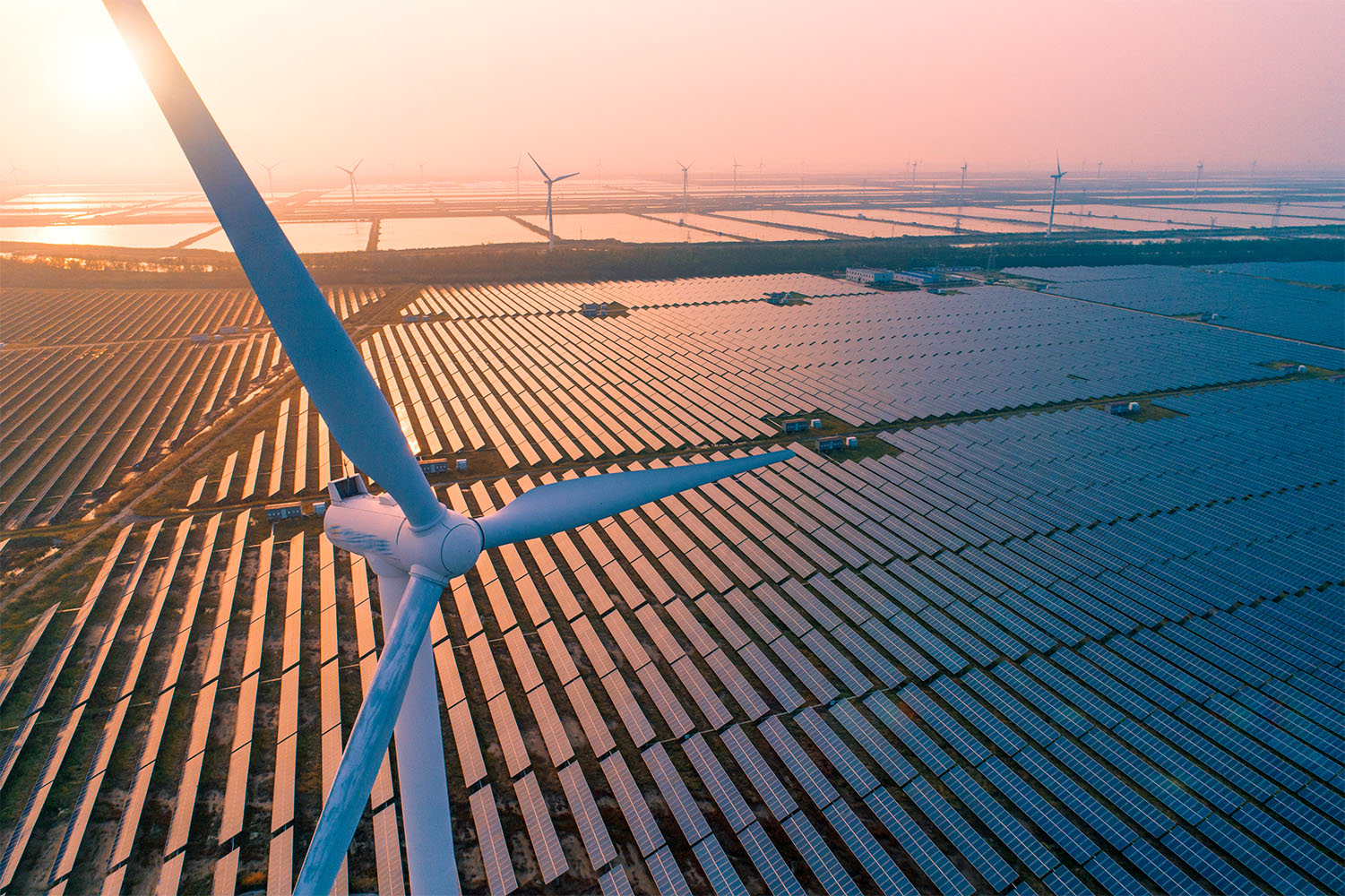The Energy Transition | UK sets new high for rooftop solar in 2025
Published on 25th November 2025
Welcome to our top picks of the latest energy regulatory and market developments in the UK's transition to net zero

This week, we look at solar installations smashing yearly records, an offshore wind project securing significant funding, the Global Clean Power Alliance publishing its mission vision for supply chains, and the progress of energy resilience and regional planning strategies.
UK rooftop solar installations break yearly record
Microgeneration Certification Scheme (MCS) has published its latest figures for certified solar installations, which have surpassed the previous annual record of 203,125 achieved in 2011. Rooftop solar on newbuild properties is demonstrably a key driver behind this, and in 2025 have accounted for 35% of all solar installations. MCS has also highlighted the positive growth in battery-storage installations, which have increased by 122% in 2025 against the same period of January to September in 2024.
The CEO at MCS, Ian Rippin, said: “It’s great to see 2025 continue to be a record-breaking year for small-scale renewables, as more people put their trust in solar to power their homes."
Supporting the increase in rooftop solar installations, the government has announced progress on its project with Great British Energy, as 23 schools have now installed solar panels, with 250 schools in total confirmed to install rooftop solar. This is an increase from the initial target of 200 panels for schools announced earlier in March.
Major floating offshore wind project secures significant public funding
Great British Energy has announced that Pentland Floating Offshore Wind Farm, which is located off the coast of Dounreay in the north of Scotland, has received significant investment from public finance institutions Great British Energy, the National Wealth Fund and the Scottish National Investment Bank. Each of the three funders has acquired a minority stake in the project, with the accompanying press release stating that each has the option to invest up to £50 million as it progresses through its development phases.
This investment indicates the government's ongoing commitment to offshore wind and notably its confidence in the floating offshore sector, which remains a relatively nascent component of the renewables mix.
Great British Energy's statement underlines the importance of floating offshore wind farms to achieving the country's clean energy targets. It states that Scotland has offshore wind capacity for 40GW of generation, and floating turbines represent 60 per cent of that pipeline, as the ability to be developed where fixed turbines cannot be.
The energy minister, Michael Shanks, stated: "Floating offshore wind is a huge opportunity for the UK, and this first stake in a project by Great British Energy helps put us at the forefront of this cutting-edge technology".
UK publishes Global Clean Power Alliance supply-chain mission
The prime minister announced on 15 November the Global Clean Power Alliance (GCPA) supply-chains mission vision. The GCPA was established in November 2024 at the G20 summit, with 12 countries signing up to join its first mission.
With endorsements from Australia, Canada, Kenya, the Netherlands, the United Kingdom, Zambia, the European Commission and COP30 presidency, the GCPA is intended to address commercial and legal challenges facing the global clean energy transition. The initiative focuses on accelerating deployment through resilient supply chains and prioritises collaboration between governments, regulators, and industry across the Global North and South.
The mission is structured around four pillars:
- Transforming data. Improving transparency and access to reliable supply chain data to inform decision-making and reduce risks for energy market participants. The International Energy Agency is developing actionable recommendations, which may influence disclosure requirements and data-sharing obligations for market actors.
- Electricity transmission system. Tackling supply chain bottlenecks, particularly in manufacturing capacity and standards harmonisation, is central to accelerating infrastructure projects. Expected commercial impact includes reduced lead times and more predictable regulatory environments for clean energy deployment.
- Circularity. The mission aims to address legal fragmentation in international recycling standards, which currently limits market access for recycled materials. Cross-border regulatory alignment and the development of circular strategies may create new opportunities and compliance considerations for firms active in clean power value chains.
- Emerging markets participation. Recognising the role of critical mineral providers in emerging economies, the alliance seeks to enable more inclusive participation through risk mitigation in financing and partnerships for skills and technology transfer. This may shift commercial dynamics and open new routes for supply chain development across emerging markets.
The initiative is supported by international organisations such as the International Energy Agency (IEA) and the Utilities for Net Zero Alliance, with ongoing engagement from business and industry stakeholders. Early involvement from the private sector is encouraged, with expected implications for contracting, investment, and future regulatory frameworks.
Government to launch new energy resilience strategy
The UK government recently announced it would publish an energy resilience strategy next year aimed at strengthening the protection of critical energy infrastructure. The new strategic framework will respond in part to recent incidents, including the North Hyde substation fire in March that exposed vulnerabilities in network resilience and highlighted the importance of prioritising rapid reconnection of critical customers during outages.
In July, NESO issued a report on the North Hyde fire, which made several recommendations to drive improvements to energy resilience across Great Britain. The government's energy resilience strategy will propose an implementation plan to make progress against these recommendations. Accordingly, the strategy will highlight the need for clear governance on responsibilities related to energy network resilience and recovery. It will also mandate enhanced collaboration between energy network operators, government agencies and infrastructure stakeholders to improve risk management practices and contingency planning.
Notably, the government stated in the report that the incident challenged existing planning assumptions on how restoration processes consider varying impacts across different cohorts of energy customers. Accordingly, the government is now proposing that Network Operators must ensure that there is a consistent and risk-based approach taken in energy restoration. Guidance will be issued, which will be used by network operators where there are decisions to be made about the respective speed of restoration across different customers. The guidance will take into account different customer cohorts served by energy infrastructure systems and set out a risk-based approach to be used by energy companies during unplanned events.
The government flags that the regulatory framework governing resilience is expected to undergo adjustments to incorporate these new priorities, influencing future license conditions and performance incentives for network companies. The strategy also emphasises investment in infrastructure hardening and diversification to mitigate supply disruptions, potentially impacting capital allocation decisions and project pipelines within the sector.
NESO consults on future regional energy strategic plans
The National Energy System Operator (NESO) has opened a public consultation on the proposed methodology for developing regional energy strategic plans (RESP) across the UK. The consultation focuses on how these plans should be formulated and integrated into the broader national strategic energy framework.
The RESP initiative aims to unify electricity and gas distribution network planning, currently managed separately, into a whole-system approach, supporting national net-zero objectives and enabling region-specific solution development. NESO indicates that regional planning will inform the business plans for distribution networks, aligning regulatory and commercial investment decisions with local priorities, and providing a mechanism for stakeholder engagement and local data usage in planning.
These developments signal increased emphasis on regionally tailored infrastructure investment and the potential for new compliance requirements once the RESP methodology is finalised and approved by Ofgem and the Department for Energy Security and Net Zero. The RESP is anticipated for launch in the summer of 2026.
The consultation is open to responses, which can be submitted via the online portal by 16 January 2026.
Julian Leslie, director of strategic energy planning and chief engineer at NESO, said the RESPs will "play a key role in helping to establish a secure, affordable and clean energy system, one that underpins economic growth and sustainability in communities across Great Britain."
This article was written with the assistance of Yasmine Jauffur, trainee solicitor and Tomisin Agbonifo, paralegal.






